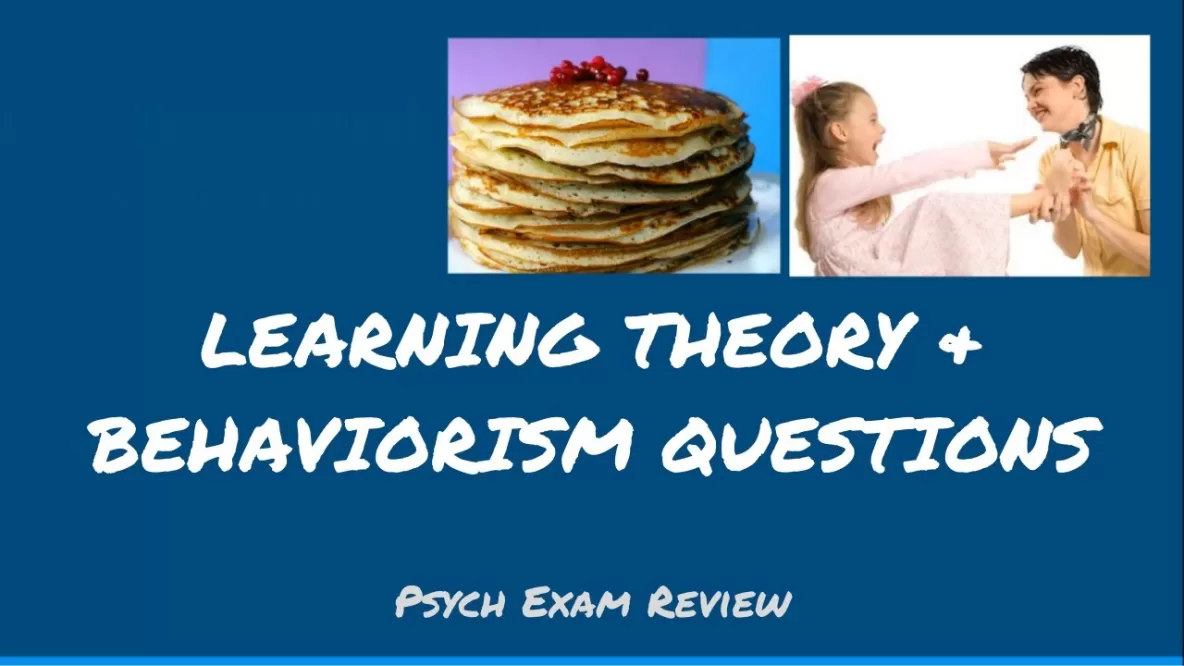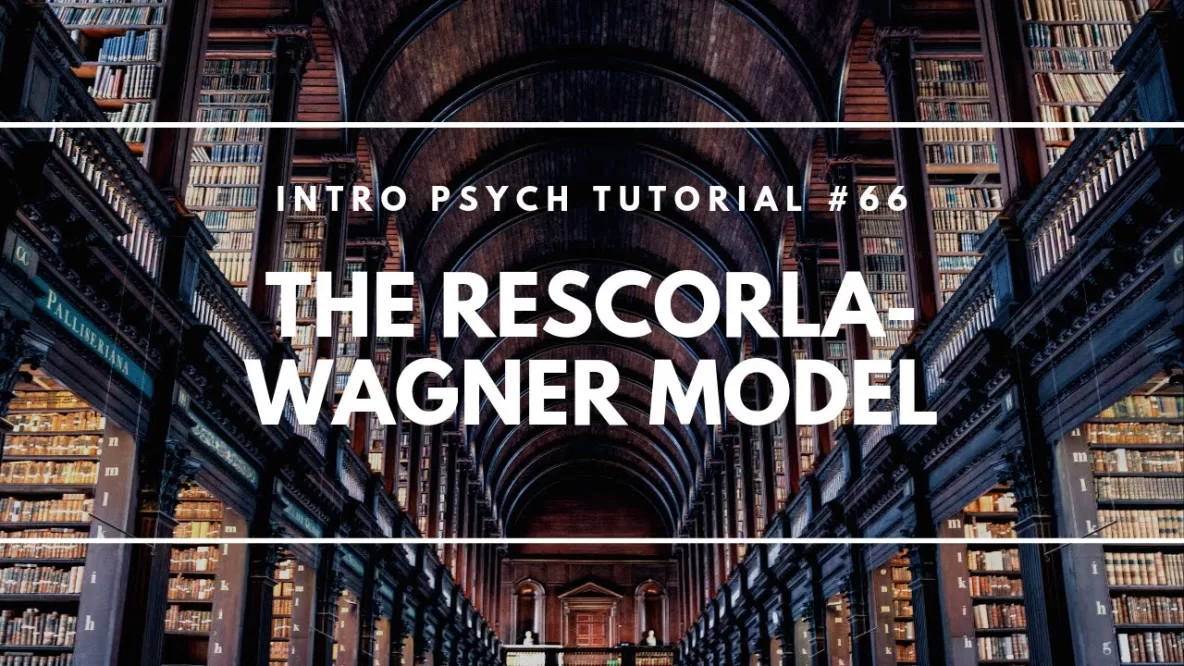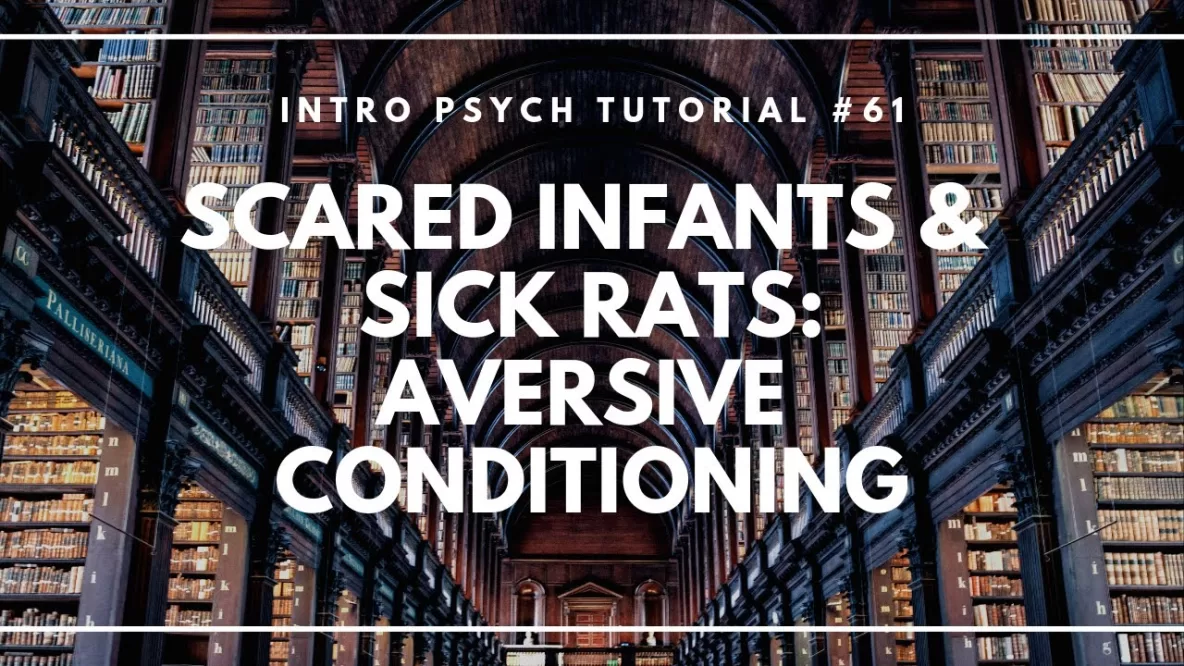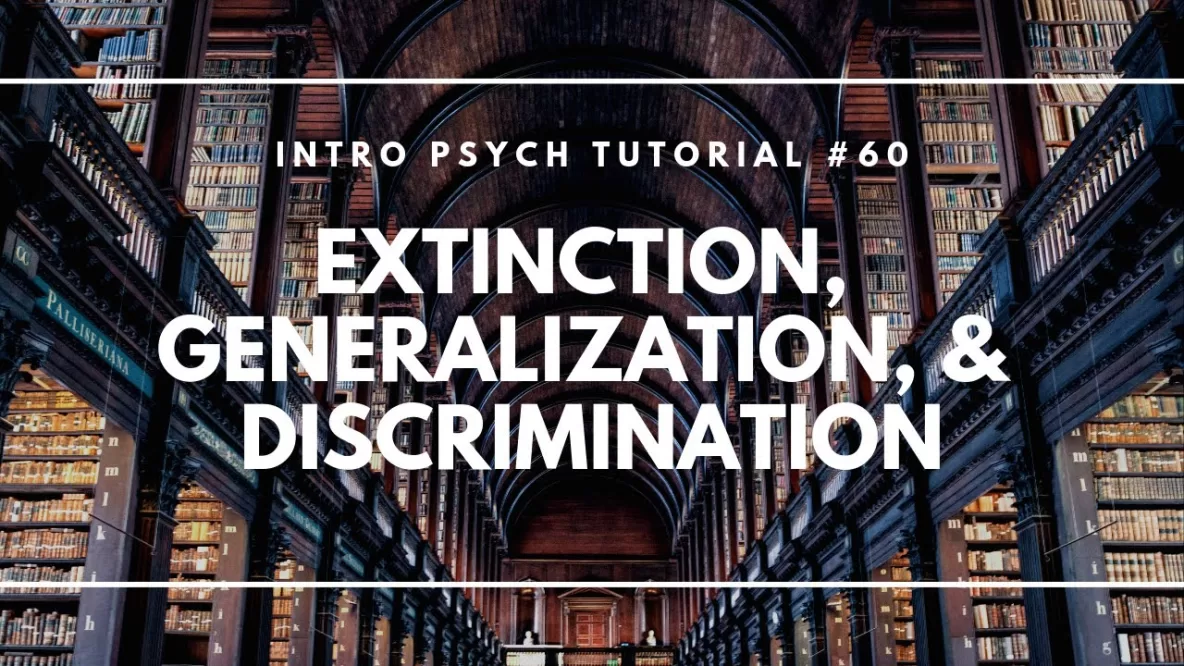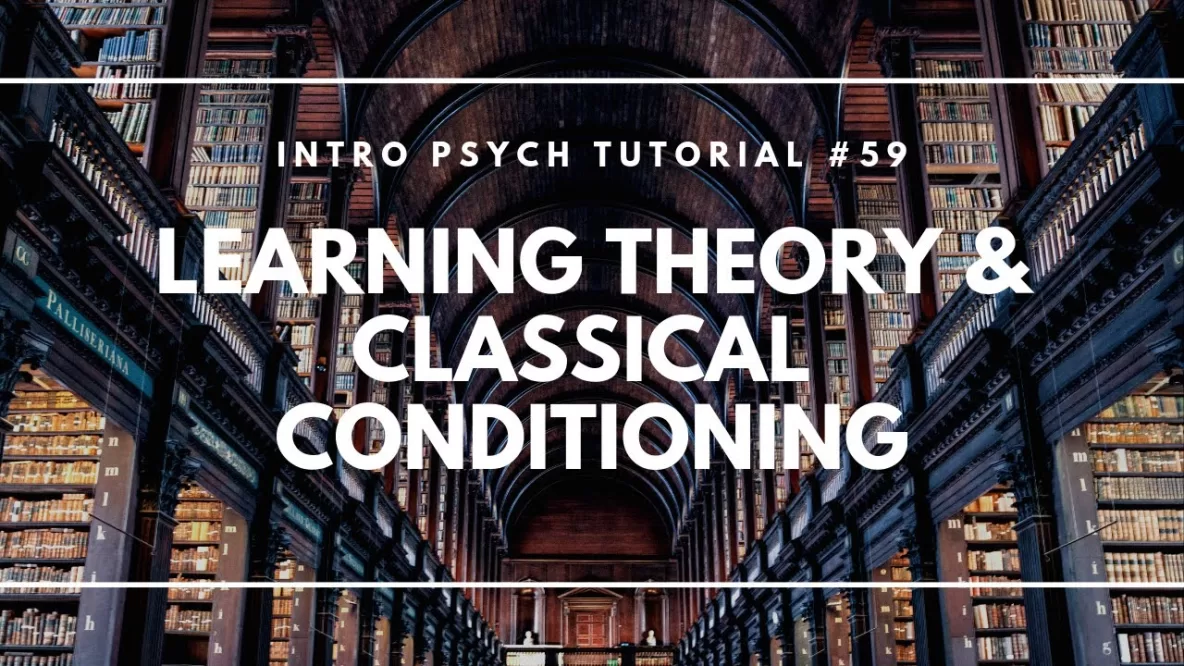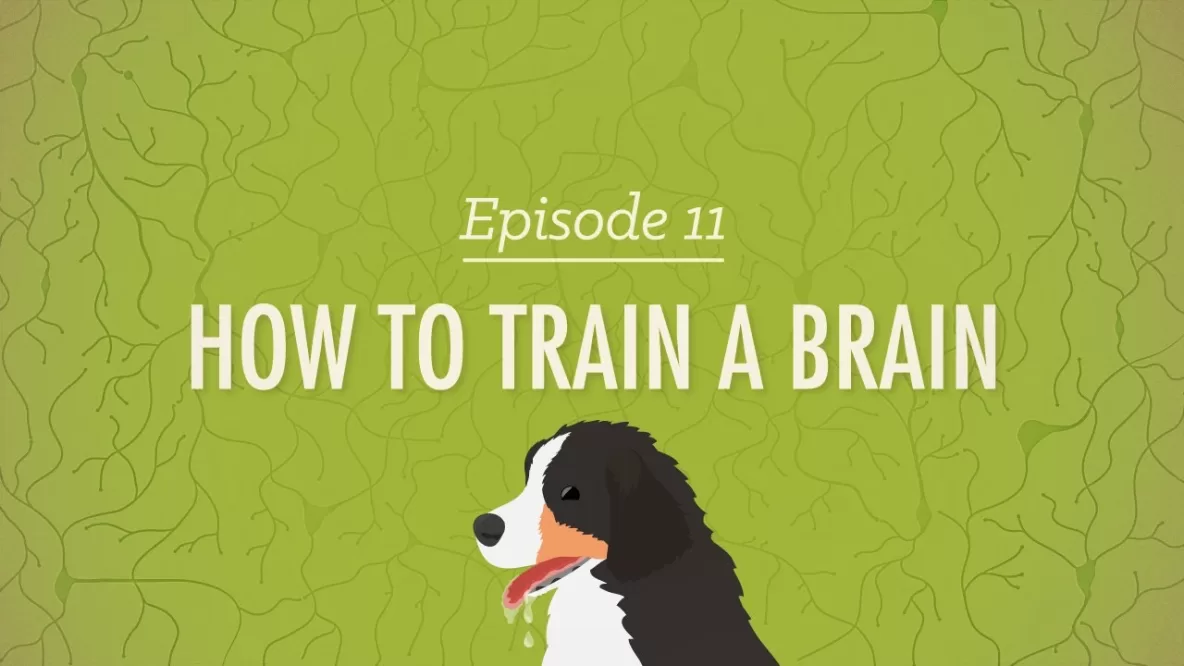The following video includes 10 practice multiple choice questions related to learning theory & behaviorism. I hope that these can help you to test and assess your own knowledge and provide practice retrieving the terms, ideas, and concepts that you’ve … Read More
The Rescorla-Wagner Model
In this video I explain the basic idea behind the Rescorla-Wagner model or contingency model of classical conditioning proposed by Robert Rescorla and Allan Wagner. This model suggests that the reason Pavlov’s dogs associated the bell (rather than some other … Read More
Scared Infants and Sick Rats: Aversive Conditioning
In this video I explain two examples of aversive conditioning; John Watson’s “Little Albert” study pairing presentation of a rat with a loud noise, and John Garcia and Robert Koelling’s work on learned taste aversions in rats. Taste aversions demonstrate … Read More
Extinction, Generalization, and Discrimination
In this video I explain some other terminology for describing aspects of classical conditioning including acquisition, extinction, spontaneous recovery, stimulus generalization, stimulus discrimination, and second-order or higher-order conditioning. Don’t forget to subscribe to the channel to see future videos! Have … Read More
Classical Conditioning
In this video I introduce learning theory and the basic concepts of behaviorism. This begins with the work of Ivan Pavlov on classical conditioning and covers the basic vocabulary for discussing this type of learning including neutral stimulus, unconditioned stimulus, … Read More
Learning Theory Resources
On this page you’ll find a number of resources for understanding the key concepts of learning theory, including classical conditioning, operant conditioning, observational learning, and more. If I’ve missed a good resource, please share it in the comments section! General … Read More

